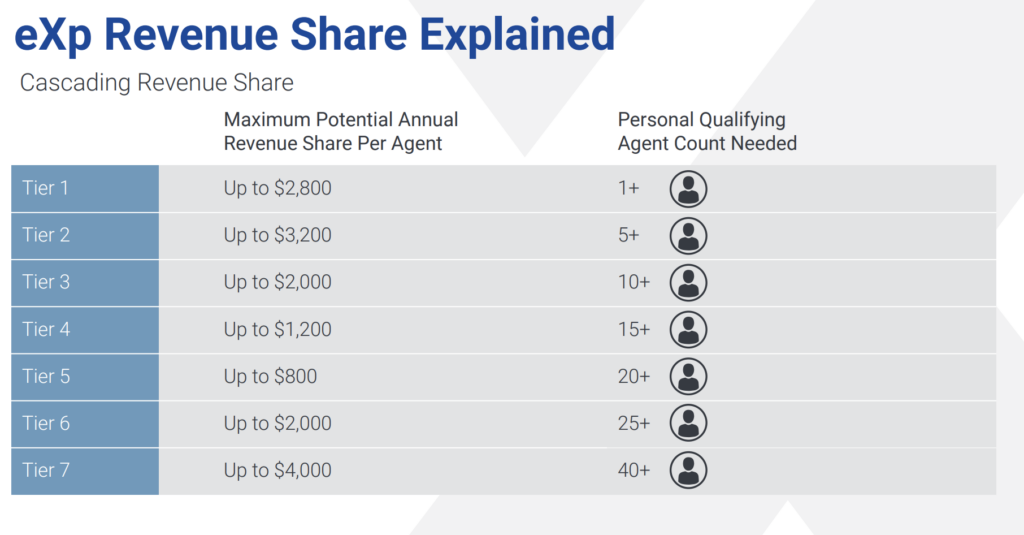
How to become a real estate broker in New York
The real estate industry is one of the most lucrative and competitive in the world. It's important for new agents that they stand out and are able to attract clients of high quality. There are several ways to achieve this in New York City.
1. Work as an experienced real estate salesperson.
As a realtor, you will be able both to sell commercial and residential real estate as well as act a middleman between buyers. You will also assist clients in determining a fair price for their home and negotiate property contracts.
2. Find a brokerage who will sponsor your career as an estate agent.
All New York real estate agents must be affiliated to a well-established brokerage. Your sponsoring broker is responsible for finding you clients, providing you an office and paying your salary. This sponsorship will allow to you take the licensing examination and start your career in real estate.

3. Complete the New York State Real Estate Salesperson License Application.
In order to qualify for a real estate broker's license, you'll need to have two years of real estate sales experience or three years in general real estate, meet the minimum points required for your experience type, and have 152 hours of qualifying education. If everything looks good, the Department of State will approve your application to take the licensing exam within a couple of weeks.
4. Take the NY Real Estate Broker's Exam and get your broker license.
Online, via the New York State Department of State site, you can obtain your New York real-estate broker's license once you have successfully completed and passed the 77 hr qualifying education program. You'll be issued a license number, along with a pocket card.
5. Your real estate broker license must be renewed every 2 years.
For your New York broker's license renewal, you must have at least two years experience in real estate, be currently employed by a licensed real estate agent, and fulfill the renewal requirements.

6. Real estate study guides are a great way to prepare you for your real-estate licensing exams.
Real estate training guides will help you to prepare for the real estate licensing exam by covering all of the important material. You can also practice online using past exam questions to prepare for your actual test.
7. Find a New York real estate broker who will sponsor you to become a real-estate agent.
You must have at least two years' experience in real estate sales or brokerage to be a New York broker. In addition, you must have completed at least 152 hours of education prior to licensing, as well as passed the real estate brokers exam.
You can increase your earning power and create new streams of income by obtaining a license as a real-estate broker.
FAQ
Is it better buy or rent?
Renting is usually cheaper than buying a house. It is important to realize that renting is generally cheaper than buying a home. You will still need to pay utilities, repairs, and maintenance. Buying a home has its advantages too. You'll have greater control over your living environment.
Should I rent or own a condo?
Renting might be an option if your condo is only for a brief period. Renting lets you save on maintenance fees as well as other monthly fees. The condo you buy gives you the right to use the unit. You can use the space as you see fit.
What is a Reverse Mortgage?
A reverse mortgage is a way to borrow money from your home without having to put any equity into the property. It works by allowing you to draw down funds from your home equity while still living there. There are two types available: FHA (government-insured) and conventional. A conventional reverse mortgage requires that you repay the entire amount borrowed, plus an origination fee. FHA insurance will cover the repayment.
What time does it take to get my home sold?
It all depends upon many factors. These include the condition of the home, whether there are any similar homes on the market, the general demand for homes in the area, and the conditions of the local housing markets. It may take up to 7 days, 90 days or more depending upon these factors.
Can I get a second mortgage?
Yes. However, it's best to speak with a professional before you decide whether to apply for one. A second mortgage is usually used to consolidate existing debts and to finance home improvements.
What are the benefits of a fixed-rate mortgage?
With a fixed-rate mortgage, you lock in the interest rate for the life of the loan. This ensures that you don't have to worry if interest rates rise. Fixed-rate loans come with lower payments as they are locked in for a specified term.
Statistics
- This seems to be a more popular trend as the U.S. Census Bureau reports the homeownership rate was around 65% last year. (fortunebuilders.com)
- When it came to buying a home in 2015, experts predicted that mortgage rates would surpass five percent, yet interest rates remained below four percent. (fortunebuilders.com)
- Over the past year, mortgage rates have hovered between 3.9 and 4.5 percent—a less significant increase. (fortunebuilders.com)
- This means that all of your housing-related expenses each month do not exceed 43% of your monthly income. (fortunebuilders.com)
- The FHA sets its desirable debt-to-income ratio at 43%. (fortunebuilders.com)
External Links
How To
How to manage a rental property
You can rent out your home to make extra cash, but you need to be careful. We'll show you what to consider when deciding whether to rent your home and give you tips on managing a rental property.
This is the place to start if you are thinking about renting out your home.
-
What is the first thing I should do? Consider your finances before you decide whether to rent out your house. If you have outstanding debts like credit card bills or mortgage payment, you may find it difficult to pay someone else to stay in your home while that you're gone. Your budget should be reviewed - you may not have enough money to cover your monthly expenses like rent, utilities, insurance, and so on. It may not be worth it.
-
What is the cost of renting my house? It is possible to charge a higher price for renting your house if you consider many factors. These include things like location, size, features, condition, and even the season. Keep in mind that prices will vary depending upon where you live. So don't expect to find the same price everywhere. Rightmove reports that the average monthly market price to rent a one-bedroom flat is around PS1,400. If you were to rent your entire house, this would mean that you would earn approximately PS2,800 per year. This is a good amount, but you might make significantly less if you let only a portion of your home.
-
Is it worth it? Doing something new always comes with risks, but if it brings in extra income, why wouldn't you try it? It is important to understand your rights and responsibilities before signing anything. You will need to pay maintenance costs, make repairs, and maintain the home. Renting your house is not just about spending more time with your family. Before signing up, be sure to carefully consider these factors.
-
Are there any advantages? Now that you have an idea of the cost to rent your home, and are confident it is worth it, it is time to consider the benefits. Renting your home is a great way to get out of the grind and enjoy some peace from your day. You will likely find it more enjoyable than working every day. If you plan ahead, rent could be your full-time job.
-
How do you find tenants? Once you've decided that you want to rent out, you'll need to advertise your property properly. You can start by listing your property online on websites such as Rightmove and Zoopla. Once potential tenants contact you, you'll need to arrange an interview. This will allow you to assess their suitability, and make sure they are financially sound enough to move into your house.
-
How do I ensure I am covered? If you fear that your home will be left empty, you need to ensure your home is protected against theft, damage, or fire. Your landlord will require you to insure your house. You can also do this directly with an insurance company. Your landlord may require that you add them to your additional insured. This will cover any damage to your home while you are not there. If you are not registered with UK insurers or if your landlord lives abroad, however, this does not apply. In such cases you will need a registration with an international insurance.
-
Even if your job is outside the home, you might feel you cannot afford to spend too much time looking for tenants. Your property should be advertised with professionalism. A professional-looking website is essential. You can also post ads online in local newspapers or magazines. A complete application form will be required and references must be provided. While some prefer to do all the work themselves, others hire professionals who can handle most of it. In either case, be prepared to answer any questions that may arise during interviews.
-
What happens after I find my tenant?After you've found a suitable tenant, you'll need to agree on terms. If you have a lease in place, you'll need to inform your tenant of changes, such as moving dates. You may also negotiate terms such as length of stay and deposit. It's important to remember that while you may get paid once the tenancy is complete, you still need to pay for things like utilities, so don't forget to factor this into your budget.
-
How do you collect the rent? You will need to verify that your tenant has actually paid the rent when it comes time to collect it. You'll need remind them about their obligations if they have not. You can deduct any outstanding payments from future rents before sending them a final bill. If you're struggling to get hold of your tenant, you can always call the police. If there is a breach of contract they won't usually evict the tenant, but they can issue an arrest warrant.
-
How can I avoid problems? You can rent your home out for a good income, but you need to ensure that you are safe. You should install smoke alarms and carbon Monoxide detectors. Security cameras are also a good idea. You should also check that your neighbors' permissions allow you to leave your property unlocked at night and that you have adequate insurance. Finally, you should never let strangers into your house, even if they say they're moving in next door.